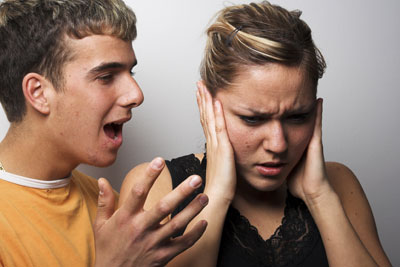
Is there abuse or violence happening in your home? If so, there are some important things you need to know.
There are different kinds of abuse. Abuse is using pain, fear or humiliation to get your way. Abuse can be:
There is no excuse for abuse. Healthy relationships do not include abuse. Period. It's OK to have strong feelings, but it's not OK to express them by hurting others. No one has a right to abuse another person. And no one deserves to be abused. Ever.
You are not to blame.
If there is violence in your home, whether against your parent, one of your siblings, or you, you are not to blame. The person who is abusing or being violent is responsible for his or her actions.
You are not alone. Abuse is an ugly secret in many homes. Lots of other children and teens experience abuse at home. More importantly, there are people who can help. They can help:
If there is abuse or violence in your home, seek help
If abuse or violence is being directed at one of your family members or at you, seek help right away! You may want to protect your family and not break the family secret, but it is very important that you tell.
If you or someone else in your family is in immediate DANGER:
If you aren't feeling safe at home:
It's important to find a supportive adult who can help, not just a friend. While it's good to have friends who will listen to you and support you, they may not know what to do to get help.
Growing up with abuse doesn't mean that you will continue the cycle.
If you are worried about having the same patterns of abuse and violence in your own relationships as a teen or an adult, there is good news and bad news.
First, the bad news. Children who grow up in families where there is abuse learn from it, and can carry what they've learned into future relationships. They can learn that in order to get their way, they have to use coercion—and can become abusers. Or their self-esteem is so low that they feel they don't deserve better—and they can become victims.
Now here's the good news: you have a choice. It is possible to unlearn the behavior you have learned from your family. And the key to making that choice is AWARENESS.
Here's what you can do to break the cycle:
Wondering how to find a counselor? Talk to your school counselor, your family doctor or another adult you trust. Ask him or her to help you find out about programs in your community that can help. (Most communities have services for victims of abuse and for abusers.)